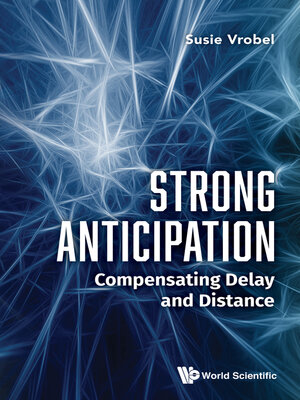
Sign up to save your library
With an OverDrive account, you can save your favorite libraries for at-a-glance information about availability. Find out more about OverDrive accounts.
Find this title in Libby, the library reading app by OverDrive.



Search for a digital library with this title
Title found at these libraries:
| Library Name | Distance |
|---|---|
| Loading... |
This book is concerned with the notion of strong anticipation. Clearly defined necessary and sufficient conditions are laid out.The focus lies on strong anticipation as delay and distance compensation (as in temporal recalibration and synchronization of coupled systems). Of particular interest are delays which correspond to a boundary shift between a systemic whole and its context. Such boundary shifts result from assignment conditions which determine what belongs to the systemic whole and what belongs to its context. Delay and distance compensation is described, along with long-range correlations, against the background of a theory of time capable of describing anticipative systems. My Theory of Fractal Time describes anticipatory systems in terms of two temporal dimensions: succession and simultaneity, which are defined and measured in Δtdepth, Δtlength and Δtdensity. These extensions form an extended present and allow a quantified comparison of obserpants' (observer-participants') temporal interfaces. Compensated delays are revealed as phenomenal blind spots, which result in a new kind of relativity: What may be compensated for obserpant A is delayed for obserpant B.Compensated delays are ubiquitous and can be found in both cognitive and physical processes. Examples are temporal recalibration to restore degraded visuomotor adaptation, coupling environment and brain, biosemiotics and homeostatic processes, dynamical diseases, embedded and situated robots, control loops with inserted or removed delays, cellular automata, analog and digital notions of trust, transitional objects and potential spaces, our perception of time and judgement of duration. It is proposed that compensated delays emerge as natural laws.







